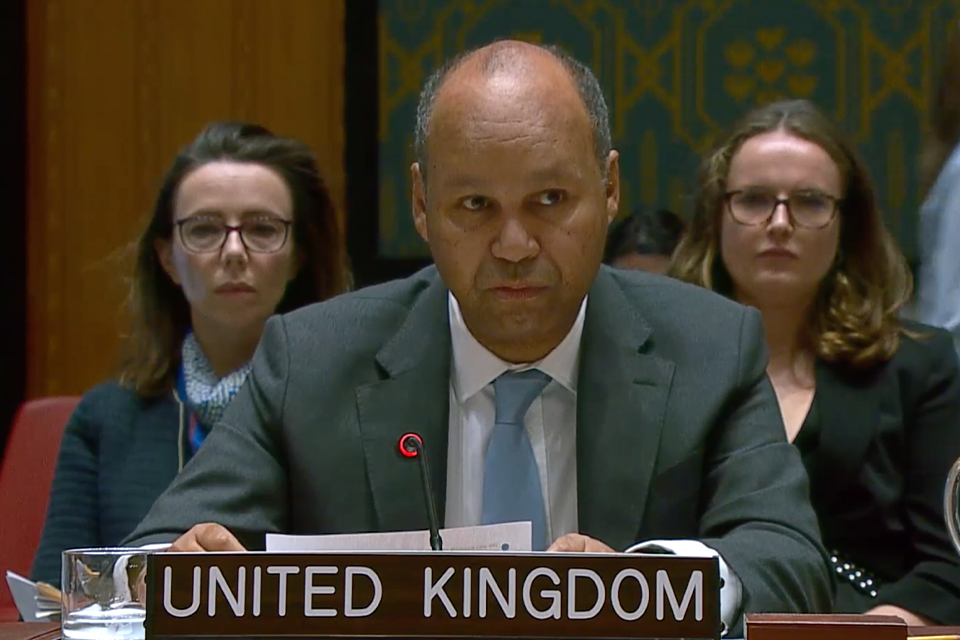Hundreds of thousands of first-time buyers set to save £710 on average when buying a home, along with vital time and energy, thanks to the biggest shakeup to the homebuying system in this country’s history.
Proposals unveiled by the government today (Monday 6 October) will speed up the long-drawn out and costly process of buying a home by four weeks, saving people money and unnecessary stress, alongside wider reforms to rewire a chaotic system which has become a barrier to homeownership.
It will see sellers and estate agents required under the plans to provide buyers with vital information about a property upfront, including the condition of the home, leasehold costs, and chains of people waiting to move. This will help end nasty surprises which result in last-minute collapses and give greater confidence to first-time buyers making one of life’s most important decisions.
Binding contracts could also be introduced to stop people walking away from agreements after buyers painstakingly spend months in negotiations. This will help halve the number of failed transactions, so precious time and money don’t go to waste, as well as avoid heartbreak and stress for hard-working people looking for the perfect home.
Housing Secretary, Steve Reed, said
Buying a home should be a dream, not a nightmare.
Our reforms will fix the broken system so hardworking people can focus on the next chapter of their lives.
Through our Plan for Change we are putting more money back into working people’s pockets and making a simple dream a simple reality.”
Thanks to new reforms proposed today, families could see clear, side-by-side information on estate agents and conveyancers – including their track record and expertise, alongside new mandatory qualifications and Code of Practice to drive up standards and rebuild trust in the industry.
These proposals will speed up the sluggish housing market by halving the number of failed sales, costing the economy £1.5 billion a year, and the government estimates reforms could accelerate transactions by around four weeks. A full roadmap to fix the broken system will be set out in the new year.
This follows the Housing Secretary’s latest pledge to ‘Build, baby, build’, leaving no stone unturned to build 1.5 million homes and break down the remaining barriers to development that stand in the way of meeting this target.
The latest housing supply figures show some green shoots of recovery, with a 29% increase in housing starts compared to last year, and the government is going further and faster to unleash the biggest era of housebuilding in the country’s history.
Rightmove CEO Johan Svanstrom said
We welcome the announcement today aiming to drive forward that much needed change and modernisation. The development of technology means transformation is possible, with the right collaboration and considerate planning.
The home-moving process involves many fragmented parts, and there’s simply too much uncertainty and costs along the way. Speed, connected data and stakeholder simplicity should be key goals. We believe it’s important to listen to agents as the experts for what practical changes will be most effective, and we look forward to working with the government on this effort to improve the buying and selling process.”
Paul Whitehead CEO at Zoopla said,
The homebuying process in the UK remains far too long, too complex, too uncertain and has seen far less digital innovation than many other sectors.
Consumers are clear in their desire for greater transparency and confidence when making life’s biggest purchase and improving the visibility of trusted information earlier in the buying process is a key part of speeding up the journey.
The property industry recognises the benefits that greater certainty and digital transformation could bring. Introducing legally binding contracts alongside better use of digital solutions has the potential to unlock significant demand and reduce failed transactions.
At Zoopla, we are committed to working closely with industry and government, and to investing our resources, to help build a modern property ecosystem that is faster, more transparent, and trusted by all.”
David Morris, Head of Homes, Santander UK said
At a time when technology has changed many processes in our lives, it is incredible that the process of buying a home – an activity that is a cornerstone of our economy – remains much the same for today’s buyers as it did for their grandparents. Our recent report, “Fixing the Broken Chain” highlighted how our antiquated system is holding back economic and individual growth, causing property transactions to collapse, and deterring buyers and sellers from entering the market at all.
This consultation reinforces our view that, as an industry, we have the opportunity to fix the system and now is the time to seize it. We’re ready to work together with Government and all those involved in the homebuying process to move this discussion into action and create a system fit for today’s buyers and sellers.”
Henry Jordan, Nationwide’s Group Director of Mortgages, said
Buying a home is often complex and stressful, which is why the homebuying process needs to be simplified and streamlined for the benefit of consumers, brokers and lenders. But to tackle this issue effectively, we must collaborate. That is why we look forward to working closely with government and the wider industry to modernise the homebuying process, so that buyers are given certainty earlier and to help reduce any unnecessary costs. The measures being consulted on, along with digitalisation and technology, are a major part of how we will get there.
Further information
-
The government is consulting on new proposals to transform the homebuying and selling process and will work with industry, which include
-
Sellers and estate agents must publish information from searches and surveys before a property listing is published. This will enable buyers to see the physical condition, characteristics, and flood risk of the property online. It will enable buyers to make informed decisions sooner and sellers will benefit from faster transactions, resulting in fewer costly fall-throughs.
-
The full list of proposed mandatory upfront information includes tenure, council tax band, EPC rating, property type, legal and transactional information such as title information and seller ID verification, leasehold terms, building safety data, standard searches, property condition assessments tailored to property age and type, service charges, planning consents, flood risk data, chain status, and clear floor plans.
-
Buyers and sellers will have the option to sign binding contracts that would end the practice of parties pulling out of agreements months into the process, costing families heartbreak and hundreds of pounds.
-
Deploying the use of digital tools – including digital property logbooks, digital ID verification, and standardised data sharing – enhancing transparency and security for buyers and sellers.
-
Introduce mandatory qualifications and ‘Code of Practice’ for estate, letting and managing agents, driving high standards in the sector and increase trust in the industry.
-
The government will publish information on the services of estate agents and property lawyers, so consumers are well informed on how and where to get help.
-
The average time from instruction to completion is over 5 months, and the government estimates these reforms could speed up transactions by around four weeks.
-
The Home Buying and Selling Reform consultation launched today can be found here
-
The Material Information Consultation can also be found here. This further consultation will support estate agents with their legal responsibilities, including requirements under the Digital Markets, Competition and Consumers Act. This will aim to help provide explicit guidance for estate agents on what information they should include in property listings.









